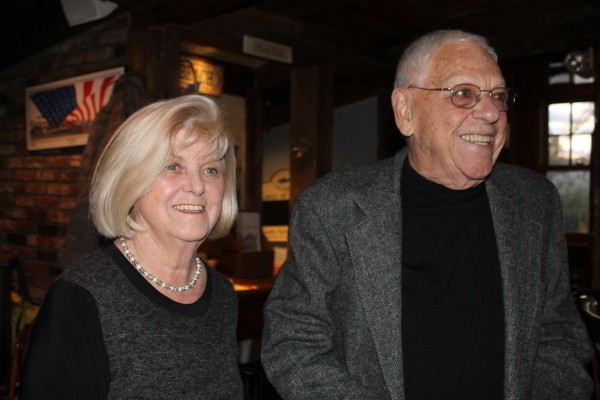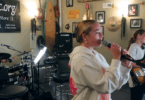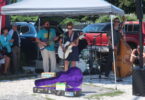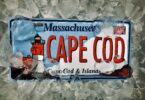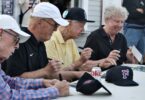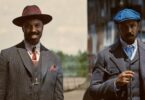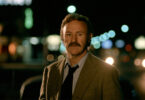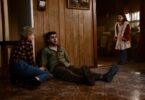FALMOUTH – The Friday before Thanksgiving, Waldo Fielding, 93, married Anita McKinnon, 77, at Falmouth Town Hall. Moments later when the smiling newlyweds arrived at the Quarterdeck Restaurant for their first drink as a married couple, bartender Dana Flynn joked that, “They had to get married.”
This was no shotgun wedding for the part-time Falmouth residents. Nevertheless the groom, with the grin of a life-long entertainer, parried back that his bride was just a little bit pregnant.
Fielding, a retired obstetrician and gynecologist, was co-founder of Pre-Term Health Services of Brookline, which once performed one-third of all abortions in Massachusetts. He knows there is no such thing as a little bit pregnant. There is only pregnant, and not pregnant.
His new wife, McKinnon, who met him five years ago at an Irish pub in Brookline, understands her new husband’s jokes. “He’s a born entertainer,” she said.
Here is a short Cape Cod Wave video of Waldo Fielding singing.
In fact, from emceeing USO shows to appearing on the Mike Douglas and Phil Donahue television shows, to now singing at the Quarterdeck (and the Chart Room in the summer), Fielding has seemingly spent half of his life in front of an audience.
A friend of Fielding’s Frank Avruch, an entertainer who was the nationally-syndicated Bozo the Clown on television, said of Fielding, “He can go on and on. He’s just a very natural storyteller.”
Another friend, Tom Sbarra of Falmouth, said, “He’s wonderful. He’s like a guy from the Borscht Belt. He could have been doing standup gigs with upstate New York in the 1950s.”
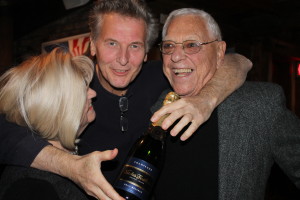
First drink as a married couple: Quarterdeck bartender Dana Flynn brings champagne for newlyweds Anita McKinnon and Waldo Fielding.
Fielding described his story with this sentence: “I have a divided genetic basis.”

